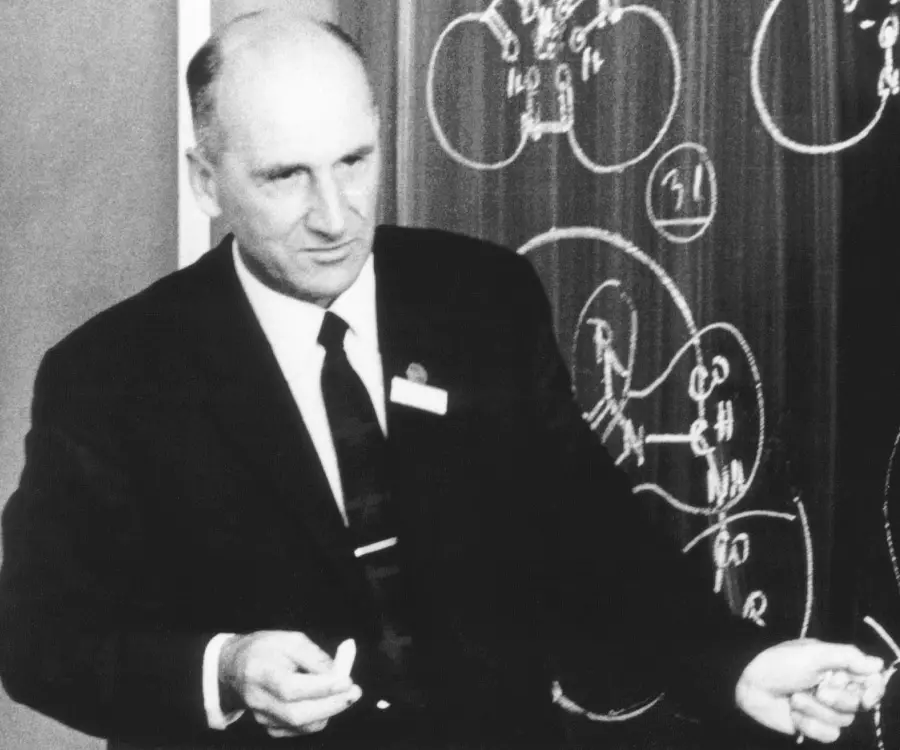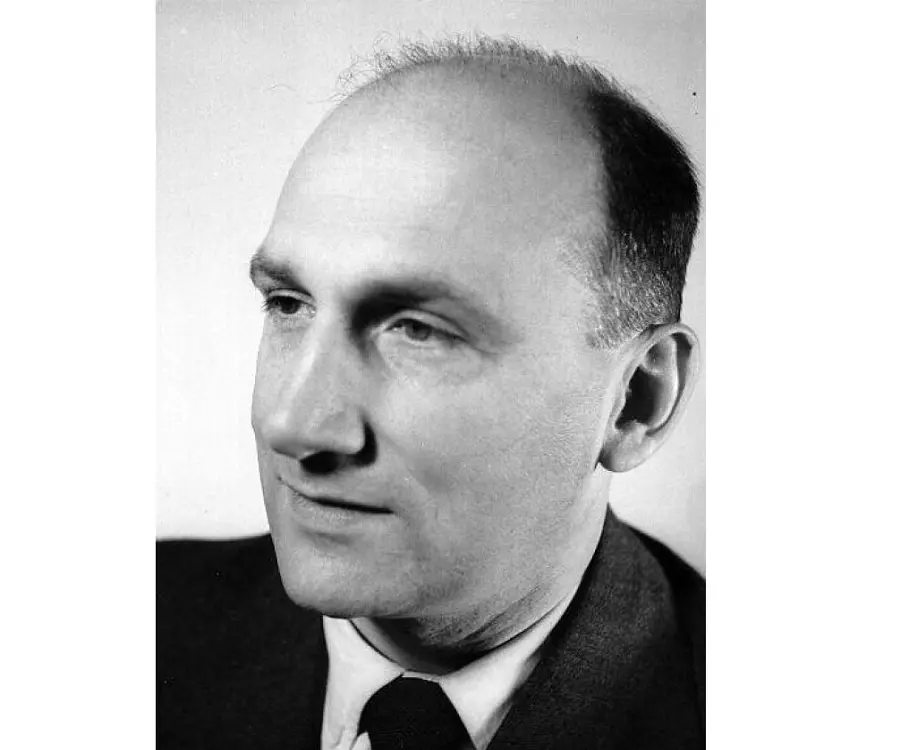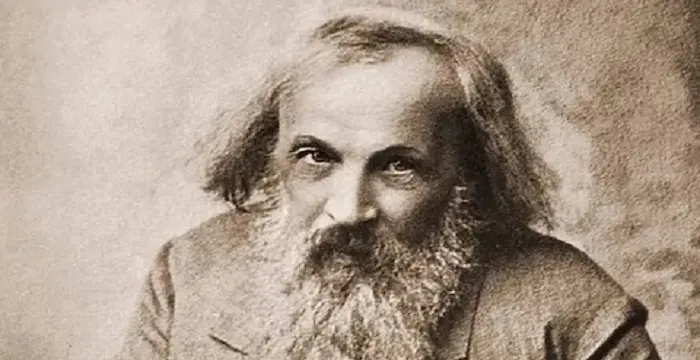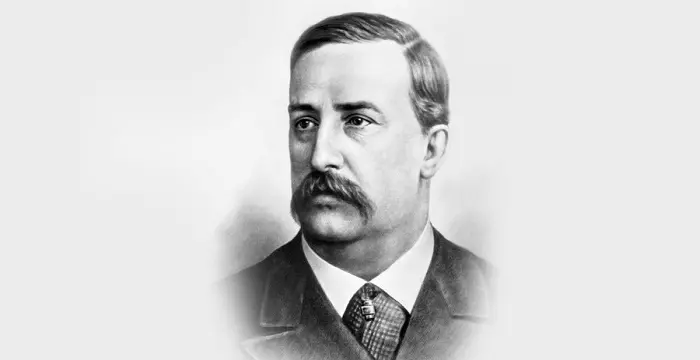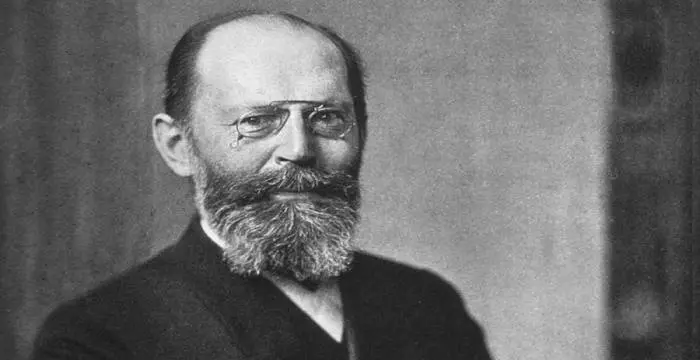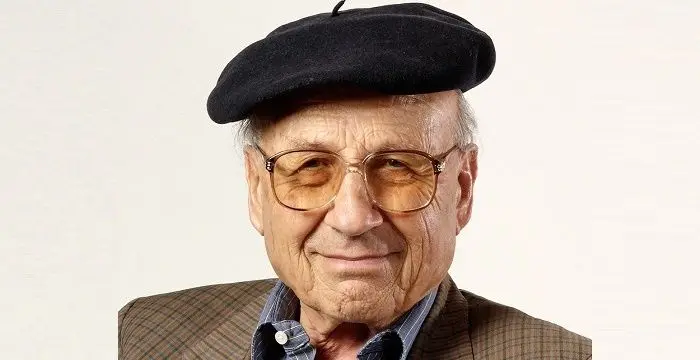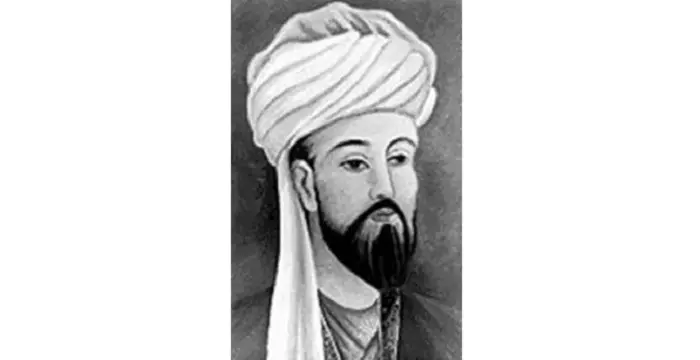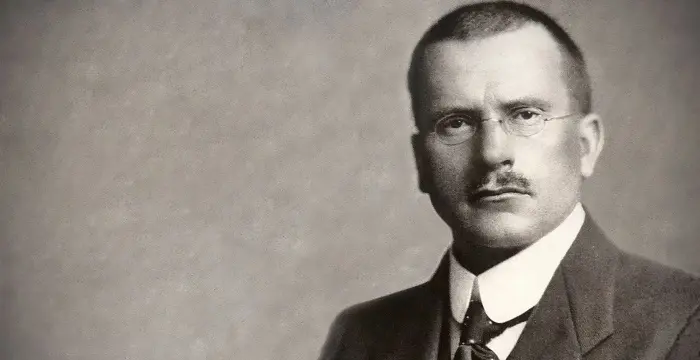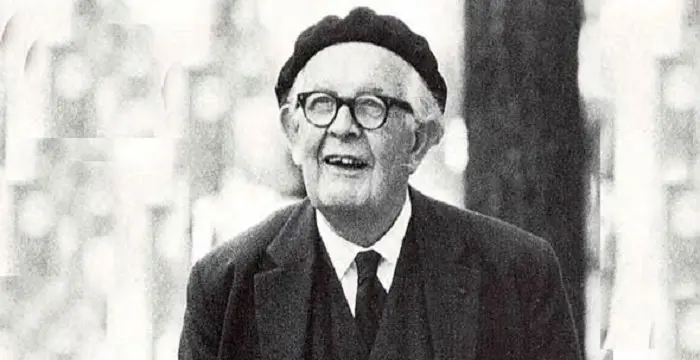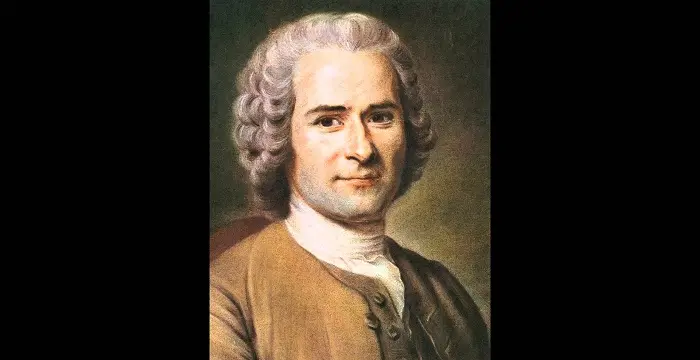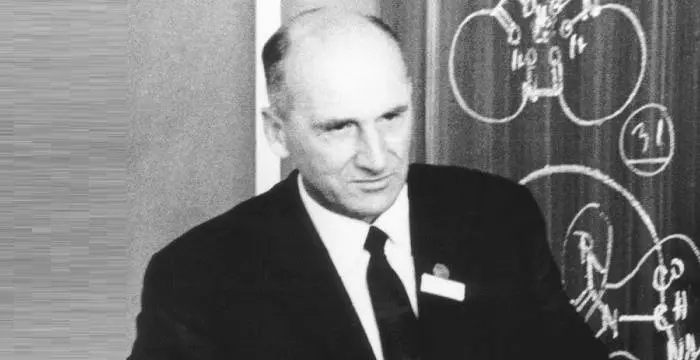
Vladimir Prelog - Organic Chemists, Life Achievements and Childhood
Vladimir Prelog's Personal Details
Vladimir Prelog was a famous Zürich-based chemist, who won the ‘Nobel Prize’ for his work on stereochemistry
| Information | Detail |
|---|---|
| Birthday | July 23, 1906 |
| Died on | January 7, 1998 |
| Nationality | Swiss |
| Famous | Scientists, Chemists, Organic Chemists |
| Hobbies | Literature, Music, Art |
| Spouses | Kamila Prelog (née Vitek) |
| Known as | V. Prelog |
| Universities |
|
| Birth Place | Sarajevo |
| Gender | Male |
| Sun Sign | Cancer |
| Born in | Sarajevo |
| Famous as | Chemist |
| Died at Age | 91 |
// Famous Scientists
Juliane Koepcke
Juliane Koepcke is a German-Peruvian biologist, who was the lone survivor among the 92 passengers and crew of the ill-fated LANSA Flight 508 that crashed in the Peruvian rainforest on 24 December 1971. Know more about her life in this biography.
Henry Cavendish
Henry Cavendish was a theoretical chemist and physicist, renowned for discovery of hydrogen and calculation of the mass of earth. To know more about his childhood, profile, timeline and career read on
Konstantin Tsiolkovsky
Konstantin Tsiolkovsky was a Russian rocket scientist and a pioneer of astronautics. This biography provides detailed information about his childhood, family, personal life, career, achievements, etc.
Vladimir Prelog's photo
Who is Vladimir Prelog?
Vladimir Prelog was a chemist from the land of Bosnia and Herzegovina, who developed a love for science, chemistry in particular, at the young age of sixteen. He was highly influenced by the work of scientists like Emil Votoček, Lavoslav Ružička, Robert Robinson, and Christopher Ingold. During his childhood, he had to move places several times, including Zagreb, Osijek, and Prague. Having received a doctoral degree from the famous 'Czech Technical University' in Prague, he ventured into the field of organic chemistry, focussing primarily on antibiotics and medical drugs. From an employee of a pharmaceutical company, he soon became a professor and then the Head of the Laboratory in the 'Swiss Federal Institute of Technology'. He continued working on his theories, making breakthroughs with British chemists Robert Sidney Cahn, and Christopher Kelk Ingold, developing a new system of determining the structure of stereoisomers, and naming it the 'Cahn–Ingold–Prelog priority rules’. Extensively helped by mentor Lavoslav Ružička, this chemist opened doors for Switzerland, in the field of organic chemistry, becoming a Nobel laureate at the age of sixty-nine. He continued research on stereo isomeric molecules present in organic compounds till his death, and is hailed by many as the pioneer of stereochemistry.
// Famous Organic Chemists
Dmitri Mendeleev
Dmitri Mendeleev was a Russian chemist who is best known for his discovery of the periodic law. Check out this biography to know about his childhood, life, achievements, works & timeline
Aleksandr Borodin
Aleksandr Borodin was a prodigal Russian music composer and scientist. This biography gives detailed information about his childhood, life, works, achievements and timeline.
Hermann Emil Fischer
Emil Fischer was a Nobel Prize winning chemist from Germany who is known for inventing the ‘Fischer Projection’ method. To know more about his childhood, career, profile and timeline read on
Childhood & Early Life
Vladimir Prelog was born to Milan, a history professor, and his wife Mara Costello on July 23, 1906, in Sarajevo, in Bosnia and Herzegovina, then under the Austro-Hungarian rule.
In June, 1914, Vladimir witnessed the assassination of crown prince of Austria, Archduke Franz Ferdinand, and Sophie, his wife, by a Serbian student. The assassination led to violent reactions against the Serbians, and this left an aversive influence on the mind of the young witness.
Milan and Mara got divorced when their son was almost nine years old, and the young boy had to move to Zagreb, Croatia, to live with an aunt. He began studying in an elementary school in Zagreb, but soon moved to Osijek, Croatia, after his father started working there.
While in school in Osijek, he was taught by chemistry teacher Ivan Kuria, who instilled in the young boy, a love for the subject. In 1922, his first study in chemistry was published in the German science journal, 'Chemiker Zeitung'.
Two years later, in 1924, Prelog graduated from school and began pursuing a diploma in chemical engineering from Prague's famous 'Czech Technical University'.
He received his doctorate degree five years later, in 1929, under the guidance of Czech chemists Emil Votoček and Rudolf Lukeš.
Career
Due to lack of employment opportunities during the severe economic crisis all over the world, a phase termed as the 'Great Depression', Vladimir began working for ‘G.J. Dríza’. G. J. Dríza, was a private laboratory in the city of Prague, and the young man worked there till 1935.
During his free time, he concentrated on his personal research using chemical compounds called alkaloids from the bark of cacao trees.
In 1935, Prelog was employed as a professor of chemical engineering and organic chemistry, at the 'University of Zagreb'. He began research on the alkaloid ‘Quinine’ and its chemical compounds, with the help of financial assistance from 'Kaštel', now known as 'Pliva', a famous pharmaceutical company.
With extensive research, he developed an antimicrobial sulphonamide drug called 'Streptazol', which soon became well-known in the pharmaceutical industry.
In 1941, after the World War II began, Vladimir was requested by Austrian-German chemist Richard Kuhn to deliver a lecture in Germany. During the same time, the former was also invited by Lavoslav Ružička, who was one of his mentors.
Taking advantage of the invitations, Prelog fled to Zürich, Switzerland, where Ružička and the pharmaceutical company 'CIBA Ltd.' helped the budding chemist get a job at the 'Swiss Federal Institute of Technology'.
In Zürich, the brilliant chemist worked on removing certain compounds called the 'chiral enantiomers' from an organic compound called 'Tröger's base' which contains carbon, hydrogen and nitrogen atoms.
He did this by using the chromatography technique for separating mixtures proving that the belief about carbon atoms being the only constituents of chiral molecules was inadequate. He stated that even nitrogen atoms could comprise the centre of a chiral (non-superimposable mirror image) compound.
Prelog began working in Zürich as an assistant professor, but by 1952, he held the prestigious position of a full professor. The exceptional scientist continued his research on alkaloids, working on chemical structures of plants like Cinchona and Erythrina.
During his time in Zürich, Vladimir researched more on natural compounds than purely chemical substances, constantly changing his methods to suit the need of the times. He conducted extensive studies on antibiotics like 'boromycin', 'rifamycin', and 'nonactin'.
He became quite popular as a stereochemist, one who studies atomic structures of molecules in detail. He was most interested in the isomeric molecules, known as stereoisomers, present in organic compounds.
In 1954, he was assisted by British chemists, Robert Sidney Cahn, and Christopher Kelk Ingold, in an endeavour to create a method using simple rules to determine stereoisomer-structures. The three chemists named the descriptors ‘Cahn–Ingold–Prelog priority rules’, which helped them, define the structure of any isomeric molecule.
By 1957, he was promoted to the Head of the Laboratory, a position that was earlier held by his mentor and friend, Ružička. Two years later, Vladimir was granted citizenship by the government of Switzerland.
Throughout his career, he researched on stereoisomers, organic molecules and the ways they react. With more than 400 published scientific works, this exceptional scientist established Zürich as one of the most important centers of organic chemistry.
Major Works
Amongst innumerable research studies conducted by this remarkable chemist, the most important is the investigation of isomeric molecules that held his interest throughout his life. It is the same that bagged him the Nobel Prize in 1975, making him one of the stalwarts of stereochemistry.
Awards & Achievements
In 1964, Prelog was awarded the 'Marcel Benoist Prize' for his invaluable contribution to organic chemistry. The prize is often known as the "Swiss Nobel Prize", and is awarded to scientists living in Switzerland.
Three years later, in 1967, the 'Royal Society of London' presented this remarkable chemist with the 'Davy Medal', in recognition of his outstanding discovery in the field of chemistry.
The 'University of Zürich' felicitated Vladimir with the 'Paul Karrer Gold Medal', in 1974, for his research in chemistry.
The following year, in 1975, this ingenious chemist was awarded the 'Nobel Prize in Chemistry', for his studies of structure and reactions of stereoisomer molecules.
Personal Life & Legacy
The famous chemist Vladimir got married to Kamila Vitek in 1933, and they were blessed with a son, Jan, born sixteen years after marriage.
An introverted, peace-loving person, in 1991, along with 108 other 'Nobel Prize' winners, he signed the peace appeal to stop the 'Battle of Vukovar', being held in Croatia.
On January 7, 1998, the famous chemist passed away in Zürich, with his ashes being buried in Zagreb's 'Mirogoj Cemetery', three years later.
In 2008, a shrine in Prelog's honour was made public in Prague.
Trivia
This pioneer of stereochemistry shared the Nobel Prize with Australian-British chemist John Conforth
// Famous Chemists
Henry Cavendish
Henry Cavendish was a theoretical chemist and physicist, renowned for discovery of hydrogen and calculation of the mass of earth. To know more about his childhood, profile, timeline and career read on
Walter Kohn
Nobel Laureate Walter Kohn was an Austrian-born American theoretical chemist and physicist. Check out this biography to know about his childhood, life, achievements, works & timeline.
Jabir Ibn Hayyan
Jabir Ibn Hayyan was a medieval era polymath. Check out this biography to know about his life, works and achievements.
Vladimir Prelog's awards
| Year | Name | Award |
|---|---|---|
Other | ||
| 0 | Nobel Prize in Chemistry - 1975 | |
| 0 | Marcel Benoist Prize - 1964 | |
Vladimir Prelog biography timelines
- // 23rd Jul 1906Vladimir Prelog was born to Milan, a history professor, and his wife Mara Costello on July 23, 1906, in Sarajevo, in Bosnia and Herzegovina, then under the Austro-Hungarian rule.
- // Jun 1914In June, 1914, Vladimir witnessed the assassination of crown prince of Austria, Archduke Franz Ferdinand, and Sophie, his wife, by a Serbian student. The assassination led to violent reactions against the Serbians, and this left an aversive influence on the mind of the young witness.
- // 1922While in school in Osijek, he was taught by chemistry teacher Ivan Kuria, who instilled in the young boy, a love for the subject. In 1922, his first study in chemistry was published in the German science journal, 'Chemiker Zeitung'.
- // 1924Two years later, in 1924, Prelog graduated from school and began pursuing a diploma in chemical engineering from Prague's famous 'Czech Technical University'.
- // 1929He received his doctorate degree five years later, in 1929, under the guidance of Czech chemists Emil Votoček and Rudolf Lukeš.
- // 1933The famous chemist Vladimir got married to Kamila Vitek in 1933, and they were blessed with a son, Jan, born sixteen years after marriage.
- // 1935Due to lack of employment opportunities during the severe economic crisis all over the world, a phase termed as the 'Great Depression', Vladimir began working for ‘G.J. Dríza’. G. J. Dríza, was a private laboratory in the city of Prague, and the young man worked there till 1935.
- // 1935In 1935, Prelog was employed as a professor of chemical engineering and organic chemistry, at the 'University of Zagreb'. He began research on the alkaloid ‘Quinine’ and its chemical compounds, with the help of financial assistance from 'Kaštel', now known as 'Pliva', a famous pharmaceutical company.
- // 1941In 1941, after the World War II began, Vladimir was requested by Austrian-German chemist Richard Kuhn to deliver a lecture in Germany. During the same time, the former was also invited by Lavoslav Ružička, who was one of his mentors.
- // 1952Prelog began working in Zürich as an assistant professor, but by 1952, he held the prestigious position of a full professor. The exceptional scientist continued his research on alkaloids, working on chemical structures of plants like Cinchona and Erythrina.
- // 1954In 1954, he was assisted by British chemists, Robert Sidney Cahn, and Christopher Kelk Ingold, in an endeavour to create a method using simple rules to determine stereoisomer-structures. The three chemists named the descriptors ‘Cahn–Ingold–Prelog priority rules’, which helped them, define the structure of any isomeric molecule.
- // 1957By 1957, he was promoted to the Head of the Laboratory, a position that was earlier held by his mentor and friend, Ružička. Two years later, Vladimir was granted citizenship by the government of Switzerland.
- // 1964In 1964, Prelog was awarded the 'Marcel Benoist Prize' for his invaluable contribution to organic chemistry. The prize is often known as the "Swiss Nobel Prize", and is awarded to scientists living in Switzerland.
- // 1967Three years later, in 1967, the 'Royal Society of London' presented this remarkable chemist with the 'Davy Medal', in recognition of his outstanding discovery in the field of chemistry.
- // 1974The 'University of Zürich' felicitated Vladimir with the 'Paul Karrer Gold Medal', in 1974, for his research in chemistry.
- // 1975Amongst innumerable research studies conducted by this remarkable chemist, the most important is the investigation of isomeric molecules that held his interest throughout his life. It is the same that bagged him the Nobel Prize in 1975, making him one of the stalwarts of stereochemistry.
- // 1975The following year, in 1975, this ingenious chemist was awarded the 'Nobel Prize in Chemistry', for his studies of structure and reactions of stereoisomer molecules.
- // 1991An introverted, peace-loving person, in 1991, along with 108 other 'Nobel Prize' winners, he signed the peace appeal to stop the 'Battle of Vukovar', being held in Croatia.
- // 7th Jan 1998On January 7, 1998, the famous chemist passed away in Zürich, with his ashes being buried in Zagreb's 'Mirogoj Cemetery', three years later.
- // 2008In 2008, a shrine in Prelog's honour was made public in Prague.
// Famous Swiss peoples
Barıs Arduc
Barıs Arduc is a Swiss-born Albanian actor. Check out this biography to know about his birthday, childhood, family life, achievements and fun facts about him.
Jocelyn Wildenstein
Jocelyn Wildenstein is an American socialite who is known for marrying into the notorious Wildenstein family.
Carl Jung
Carl Jung was a Swiss psychiatrist famous for founding the school of analytical psychology. This biography of Carl Jung provides detailed information about his childhood, life, achievements, works & timeline.
Jean Piaget
Jean Piaget was a psychologist and philosopher known for his theory of cognitive development. This biography of Jean Piaget provides detailed information about his childhood, life, achievements, works & timeline.
Venus Palermo
Venus Palermo, also known as Venus Angelic, is a well-known Swiss YouTuber. Let’s take a look at her family, age, birthday, etc.
Jean-Jacques Rousseau
Jean-Jacques Rousseau was a noted Swiss-born philosopher, writer and composer. Check out this biography to know about his childhood, family life, achievements and other facts about his life.
Vladimir Prelog's FAQ
What is Vladimir Prelog birthday?
Vladimir Prelog was born at 1906-07-23
When was Vladimir Prelog died?
Vladimir Prelog was died at 1998-01-07
Where was Vladimir Prelog died?
Vladimir Prelog was died in Zürich
Which age was Vladimir Prelog died?
Vladimir Prelog was died at age 91
Where is Vladimir Prelog's birth place?
Vladimir Prelog was born in Sarajevo
What is Vladimir Prelog nationalities?
Vladimir Prelog's nationalities is Swiss
What is Vladimir Prelog hobbies?
Vladimir Prelog's hobbies is Literature, Music, Art
Who is Vladimir Prelog spouses?
Vladimir Prelog's spouses is Kamila Prelog (née Vitek)
What was Vladimir Prelog universities?
Vladimir Prelog studied at Czech Technical University in Prague
What is Vladimir Prelog's sun sign?
Vladimir Prelog is Cancer
How famous is Vladimir Prelog?
Vladimir Prelog is famouse as Chemist



